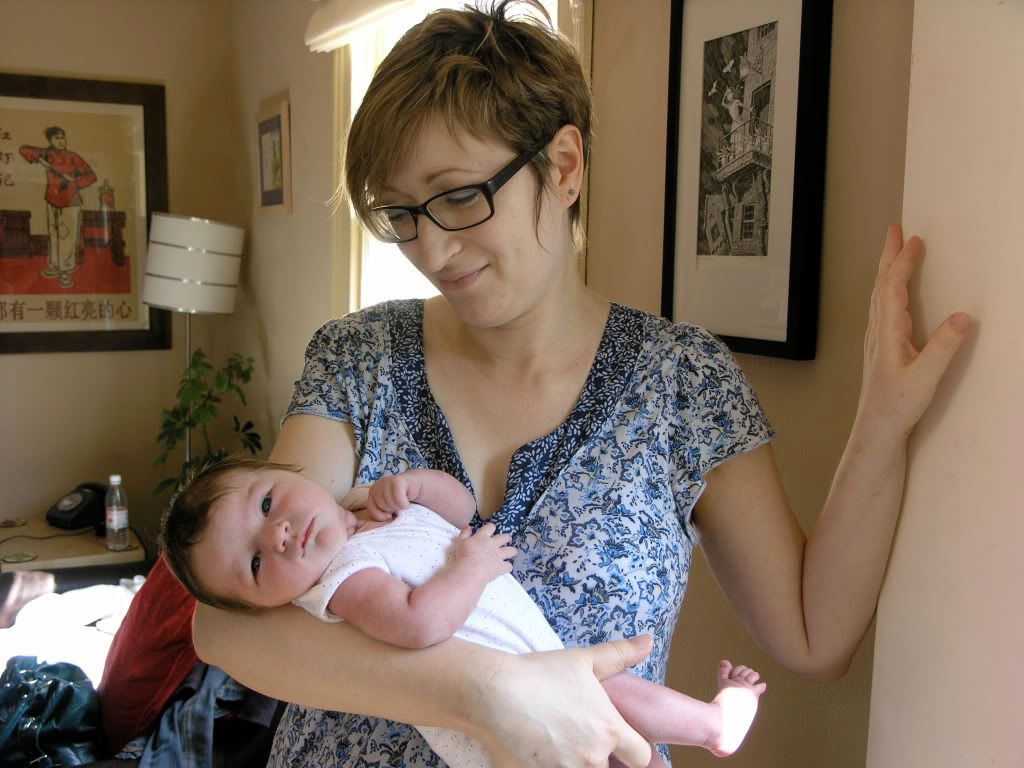
Things New Born
For Helen, Rich and Marlie
1. …I am past moe children, but thy sons and daughters will be all gentlemen born…
Thou mettest with things dying, said the shepherd,
but I with things new born, and the new born
are strange, not quite of the world, and yet
precise, just so, and of it, though we forget
the shapes of things, the violent way they’re torn
from us, as if we were no more than a cupboard
in a corner, forgotten most of the time,
then suddenly burgled by the realm of things,
the thing we are emerging into air
and light, the seeming freedom of just being there;
then loss of freedom, the dense tangle of strings
that binds us, the twigs painted with birdlime
that prevent us singing but which we must sing
like any voice that rises from anything.
2. …that rare Italian master, Julio Romano…
The statue moves the way that statues move
in human voices, whether in speech or song,
the air empty then suddenly full of us,
the cry that escapes us, the brief preface
of a book we can’t read, however short or long,
because it’s still unwritten, at one remove
from anything we know. We are the thing
that’s written: the ghost-writer, the ghost
that now and then appears at the very back
of the eye, writing its history of lack
and hope, of which it is fated to make the most,
scraping the birdlime, cutting through the string.
Then suddenly the statue’s closed eye opens:
the baby’s world becomes whatever happens.
3. Where's Bohemia? Speak…
Not a good year for dying: the catalogue
is much too long: young friend, old friend, father,
mentor, acquaintance... You offer too much choice,
too all-at-once, death. What does it mean to voice
such loss? Like spitting against the weather,
just names enough to feed a passing fog
receding over the sea at Winterton;
an ancient winter’s tale that ends in spring
and moving statues, reconciliation
between lost and found, and the best consolation
of the spirit becoming once again a thing
with body and voice, a distinct someone.
My prettiest Perdita, but O the thorns
We stand upon: Girls! Hippogriffs! Unicorns!
4. …the king’s daughter is found…
Of course she’s found! Everything is found,
because we keep finding things, and ourselves,
in the look of things. The collector, who delves
through boxes of junk, keeps his eye to the ground
and the look of the thing rises like some peculiar
whale, as yet unclassified by zoologists.
World is ocean: there are things beyond official lists
at the bottom, sightless things such as we are,
not yet ready to see, like a baby’s eye
moving to light as rhythm, pain, intrusion,
revelation. We are found in our confusion.
We are the revelation, the expected reply
of the deep lost bed, in the least likely quarter
of the universe: the king and queen’s lost daughter.

5 comments:
Wonderful
Mother and new born child. Is there anything more beautiful on this earth? I don't think so. And Marlie and Helen only confirm what I know.
Those are five beautiful, wondrous toes I see there. All the better for: One little piggie went to market...
Very nice indeed. The king is a thing/ - A thing, my lord?/ - Of nothing.
Nice sideways shift from The Winter's Tale to Hamlet, Anjali. It makes me think a little more - probably on a new post.
Thank you, Plump.
And Billy, the toes are all there. I counted them out and I counted them all back in, as the reporter in the Falklands War told us. Though between us, one toe more or less and she' still have been beautiful.
Lovely.
I read "Where's Bohemia? Speak…" only a few day after we lost one of our very finest poets, Iwan Llwyd. Such is the way of the world...
Post a Comment